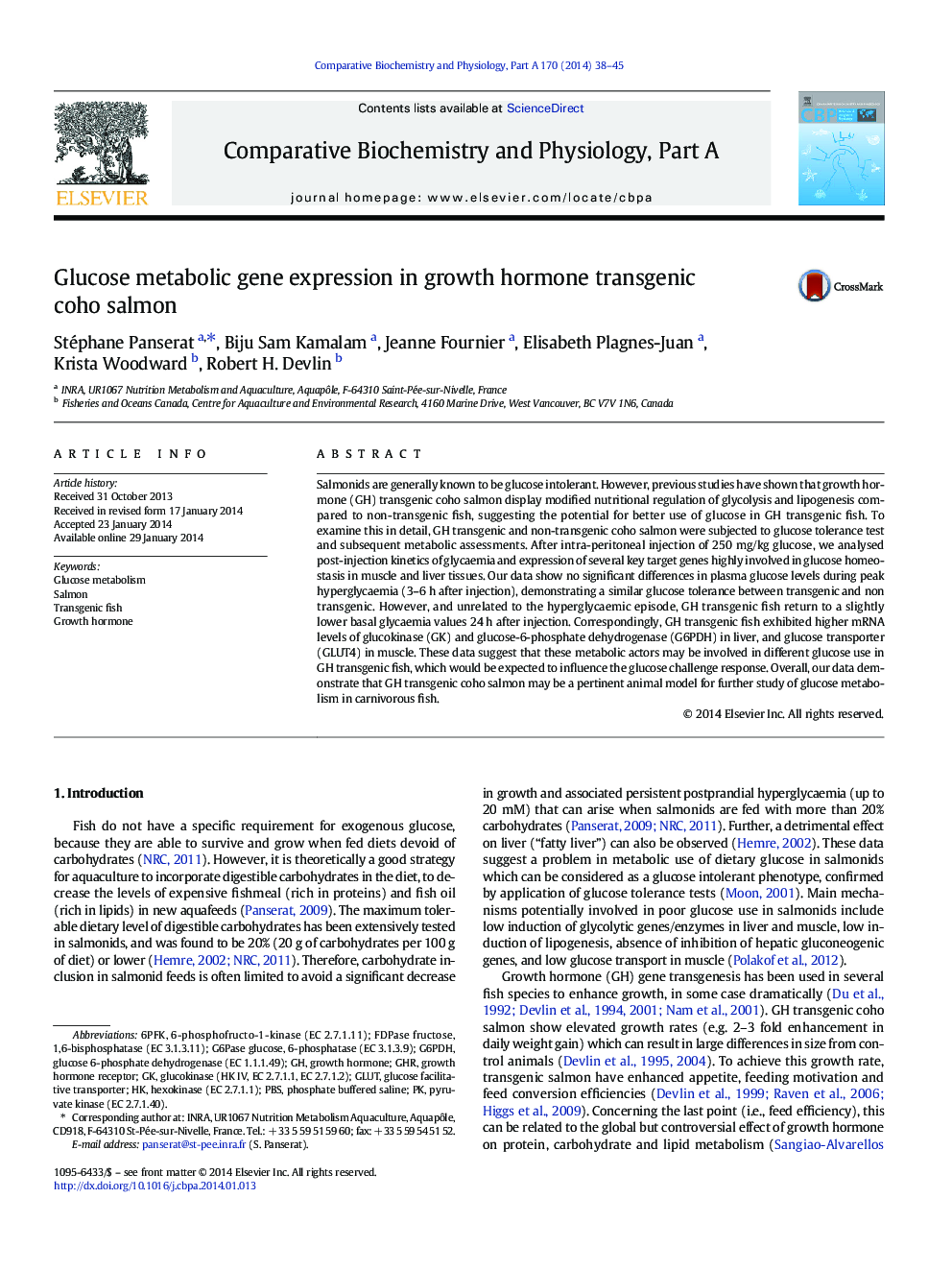| Article ID | Journal | Published Year | Pages | File Type |
|---|---|---|---|---|
| 1972217 | Comparative Biochemistry and Physiology Part A: Molecular & Integrative Physiology | 2014 | 8 Pages |
Salmonids are generally known to be glucose intolerant. However, previous studies have shown that growth hormone (GH) transgenic coho salmon display modified nutritional regulation of glycolysis and lipogenesis compared to non-transgenic fish, suggesting the potential for better use of glucose in GH transgenic fish. To examine this in detail, GH transgenic and non-transgenic coho salmon were subjected to glucose tolerance test and subsequent metabolic assessments. After intra-peritoneal injection of 250 mg/kg glucose, we analysed post-injection kinetics of glycaemia and expression of several key target genes highly involved in glucose homeostasis in muscle and liver tissues. Our data show no significant differences in plasma glucose levels during peak hyperglycaemia (3–6 h after injection), demonstrating a similar glucose tolerance between transgenic and non transgenic. However, and unrelated to the hyperglycaemic episode, GH transgenic fish return to a slightly lower basal glycaemia values 24 h after injection. Correspondingly, GH transgenic fish exhibited higher mRNA levels of glucokinase (GK) and glucose-6-phosphate dehydrogenase (G6PDH) in liver, and glucose transporter (GLUT4) in muscle. These data suggest that these metabolic actors may be involved in different glucose use in GH transgenic fish, which would be expected to influence the glucose challenge response. Overall, our data demonstrate that GH transgenic coho salmon may be a pertinent animal model for further study of glucose metabolism in carnivorous fish.
